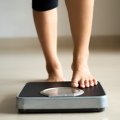
Sixty Brisbane Telstra office workers are at the front line of a University of Queensland project that aims to combat the health risks that result from prolonged sitting.
The Energise project, led by Dr Nicholas Gilson from UQ’s School of Human Movement Studies, aims to shed light on the types of ‘sit less, move more’ strategies that can help improve employee health and productivity.
Dr Gilson said there was an urgent need to get office workers moving, and the project’s findings would be pivotal in helping employees and employers manage occupational physical activity and sitting.
“Not being able to move regularly across the working day can lead to an energy imbalance weight gain and an increase in the likelihood of developing heart disease, Type 2 Diabetes and some cancers,” he said.
“Prolonged occupational sitting can also be linked to employees working while sick and poor work productivity.”
The three-stage project will examine how effectively ‘sit less, move more’ strategies can be incorporated into the busy day-to-day routines of office workers.
The first stage involved the assessment of typical sitting and movement patterns of 60 staff in a Brisbane CBD Telstra office.
In the second stage, employees are taking part in workshops to discuss these patterns and the latest evidence on occupational sitting and health.
The workers will then decide on a ‘menu’ of work-based movement choices – such as sending emails on a device while walking, and walk-talk meetings – which they will trial in the third and final stage of the project.
Dr Gilson said some employees would be prompted to engage in movement choices through real-time feedback provided by a ‘sitting pad’ developed at UQ.
“The sitting pad fits onto an office chair and, has a pressure sensor that detects transitions to and from sitting,” he said.
“A ‘traffic light’ visual appears on the worker’s computer screen with lights which progress from green to amber to red if a break from desk-based sitting does not occur within pre-defined thresholds."
The Energise project, scheduled for completion in March 2015, is supported by a National Heart Foundation of Australia grant.
Media: Dr Nicholas Gilson, UQ School of Human Movement Studies, 0431 099 337
.jpg)











